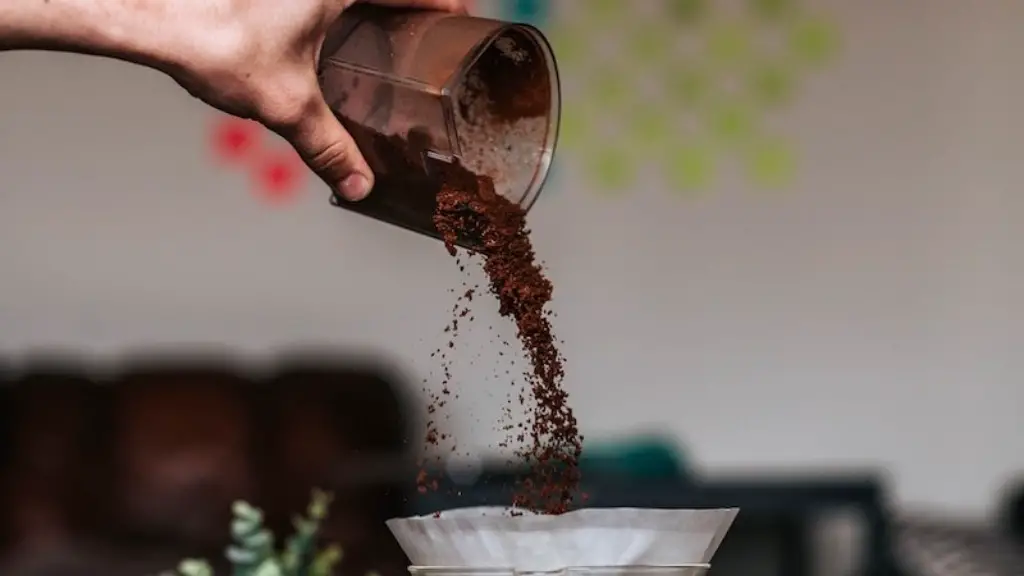Is it safe to drink coffee during your menstruation? Periods can be debilitating and exhausting for many, leading to the ever-tempting question of whether caffeine can have a beneficial effect. This article will explore the possible effects, pros and cons of drinking coffee during your period, so you can make an informed decision.
A number of studies have suggested that coffee, in moderation, can help alleviate some of the symptoms associated with premenstrual syndrome (PMS). Coffee contains caffeine, a stimulant that increases alertness and can reduce headache, tiredness and muscle aches. Caffeine has also been associated with increasing the ability to cope with stress, which may be beneficial during menstruation.
However, it is important to note that too much caffeine can have a negative effect. It has been suggested that drinking more than four cups of coffee per day may lead to anxiety, insomnia and irregular heartbeats. Additionally, some people are more sensitive to caffeine than others and may feel its effects more acutely. Therefore, it is important to understand your own limits when it comes to drinking coffee.
It is also important to note that some substances in coffee can have a diuretic effect, causing an increase in urination. This can lead to dehydration and make cramps worse. Therefore, it is essential to remember to drink plenty of water while drinking coffee. Additionally, dairy products, such as milk and cream, can affect the absorption of caffeine, so it is important to consider this when consuming coffee during your period.
Finally, the body needs time to rest and repair itself. Caffeine can disrupt this important process and make it more difficult to get a good night’s sleep. Therefore, it is important to consider the timing of when you are drinking coffee, as it may be beneficial to abstain in the days leading up to and during your period.
Why Some Women Choose to Drink Coffee During Menopause
Caffeine has been known to provide a boost at different times of the month and has the potential to reduce fatigue and headaches associated with menstruation. It should be noted, however, that the effects of caffeine can vary for each individual and too much can cause adverse side effects.
For some women, the advantages of having a cup of coffee may seem worth the risk. Drinking coffee can give women a burst of energy or a feeling of clarity, allowing them to face their period with a renewed sense of strength and control. Additionally, it can provide a moment of respite from the physical and emotionally challenging experience of menstruation.
Whether you choose to incorporate coffee into your period routine is ultimately a personal decision. It is important to be aware of the potential benefits and risks of drinking coffee during menstruation, as well as taking into consideration your individual needs and limits.
The Health Benefits of Coffee During Menopause
One of the major health benefits of drinking coffee is its potential to reduce inflammation. Caffeine has been studied for its role in managing inflammation, which can help reduce the symptoms associated with premenstrual syndrome, such as cramping, bloating and acne. Coffee is also packed with antioxidants, which can help to combat free radicals, nutrients that can be depleted during menstruation.
Furthermore, some studies have suggested that coffee can improve physical performance and stamina. For many, this can be an advantage during physical activities, such as running, swimming or yoga. Caffeine has also been found to boost mental clarity and alertness, which can be beneficial for concentration during the day or completing tasks.
The Side Effects of Drinking Coffee
Despite the potential health benefits of coffee, it is important to be aware of the risks associated with drinking too much. Caffeine is a stimulant, which can increase alertness, but can also cause symptoms such as restlessness, headaches, irritability and even insomnia. Additionally, caffeine can be dehydrating, and therefore cause an increase in urination.
Coffee is also acidic, meaning it can increase stomach acid, leading to indigestion, heartburn and nausea. Additionally, coffee can interfere with certain medications, including some contraceptive pills and certain antidepressants. Therefore, it is important to consult with a healthcare professional before drinking coffee if you are taking any prescription medications.
Alternatives to Drinking Coffee
Although coffee may be beneficial for some, there are many other ways you can cope with PMS symptoms that don’t involve caffeine. Eating a nutritious and diverse diet, drinking plenty of water and exercising regularly can all help to reduce the severity of symptoms associated with menstruation. Additionally, there are numerous supplements that are believed to be beneficial for relieving PMS, such as magnesium and vitamin B6.
Additionally, there are many herbal remedies and natural remedies to aid in alleviating period pain. Common herbs such as chamomile, ginger and peppermint have been known to provide relief from cramps and headaches, while natural remedies such as hot and cold compresses, massage and acupuncture can also be effective in soothing painful muscles.
The Takeaway
Ultimately, the decision to drink coffee during menstruation is down to the individual. It is important to be aware of the potential benefits and risks associated with drinking coffee, as well as paying attention to your own needs and limits. Additionally, there are many other methods to alleviate PMS symptoms, such as a healthy diet and various herbs and natural remedies.



